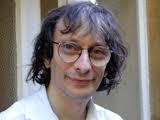Jacob Z. Hess, Ph.D.
First published on the EternalCore Conference website (Join us this coming Friday and Saturday, March 29-30 in Salt Lake City for a gathering to explore a “God-Centric Mental Health” – what that looks like, and what it could mean for those suffering).
Note: Suicide is an inherently difficult topic – especially for those families who have been impacted by this tragedy. It’s precisely the enormous pain of suicide that arguably calls for a wide-ranging discussion of anything that could potentially help reduce the numbers. The purpose of this article is to raise one possibility not widely considered – partly because it involves an intervention largely embraced as central to solving the problem. This article does not constitute medical advice and should not be used to guide individual care decisions. No changes to any medication regimen should be made without supervision from a physician – especially since research confirms that dosage changes are one of the times where risk for suicidality is heightened. I believe that everyone is doing the best they can to solve this societal problem, and that we need to make sure there is space in our public discussion for all possibilities (including unpopular ones) so we can make more progress. All feedback will be appreciated.
Like so many others, I’ve lost loved ones to suicide. The heartbreak this causes for so many families has prompted enormous prevention efforts and a wonderful new Church website dedicated to helping raise awareness.
The most obvious question that comes up is why? What was it that led this individual…to that? Although there will always be some uncertainty involved in this profound heartbreak, thousands of studies documenting various risk factors for suicide make it clear that no single cause is responsible, as much as hundreds of overlapping contributors.
As suicides keep rising, another “why” question arises: Why have the numbers been going up? This brings up other conversations about social media and the opioid epidemic, along with other unique cultural and economic factors that have shifted markedly in the last decade or two. Shifting views on sexuality have also been rightly discussed as potentially playing a role in growing distress, although there are substantial disagreements about how to make sense of that influence.
The why question we’re not talking about. There’s a third “why” question that is far less obvious and rarely discussed: Why do these numbers continue to rise, even when we are doing so much to decrease them?
Continue reading


 In my last two posts on Computational Theory, I first explained
In my last two posts on Computational Theory, I first explained